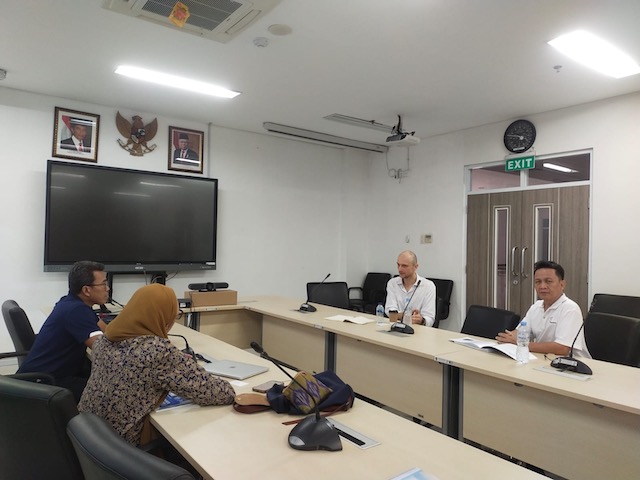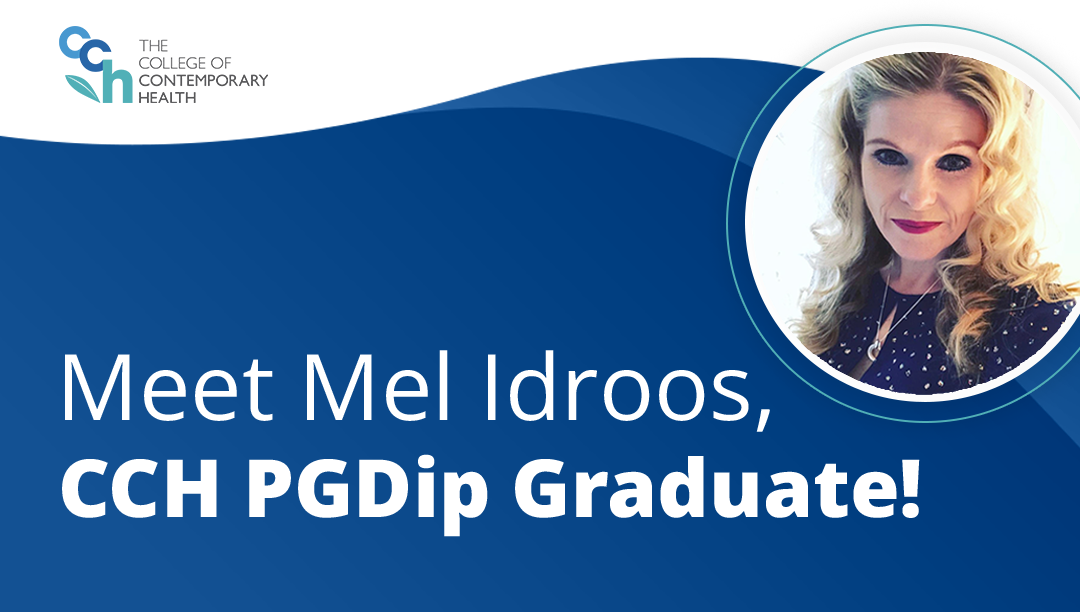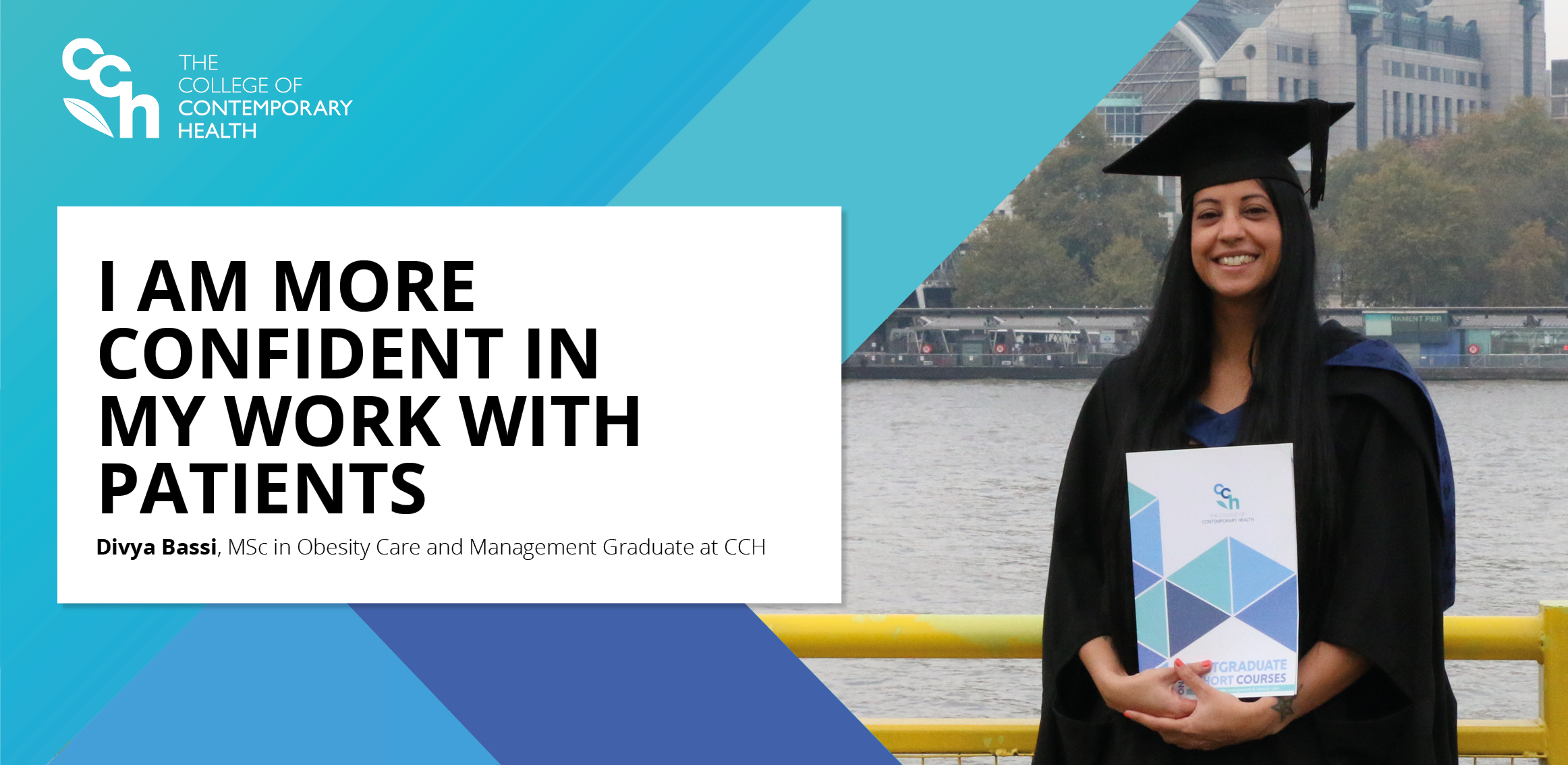
Social media a “powerful” tool for obesity awareness amongst teenagers
Amid the rising global challenge of obesity, particularly among adolescents, there emerges an “urgent necessity” to leverage social media for disseminating scientific knowledge about obesity. This call to action was highlighted by Dr. Antonella Franceschelli, MD, PhD, at the European Congress on Obesity (ECO) 2024 in Venice, Italy. Dr. Franceschelli, affiliated with the UniCamillus International Medical University in Rome, stressed the significant influence that social media holds over young individuals.
Dr. Franceschelli’s team conducted an analysis focusing on the impact of obesity-related content on TikTok. Between 2021 and 2024, 108 videos from the account ‘Dr Anthos’ garnered a staggering 4631 views, averaging 42,495 views per video. A notable highlight was a video on the glucagon-like peptide 1 receptor agonist semaglutide, which achieved nearly a million views. This indicates a strong interest and engagement among the youth regarding obesity treatments and scientific discussions online.
The growing prevalence of obesity requires innovative strategies, particularly as over 90% of teenagers actively engage on social media platforms. Brands frequently target this demographic with food and beverage promotions, which can have mixed impacts on young consumers’ health, contributing to obesity, hypertension, and type 2 diabetes. However, Dr. Franceschelli suggests that this same medium offers immense potential to promote healthy eating and obesity awareness among youth.
Different platforms like TikTok, Instagram, and Facebook serve as powerful tools for medical professionals to reach out to the public and educate them on new therapeutic advancements. Each platform’s unique features provide distinct opportunities for effective communication. The ‘Dr Anthos’ TikTok account serves as a prime example, offering short videos about obesity management, including dietary advice, exercise tips, and medical treatments, alongside live Q&A sessions with healthcare experts. These videos especially resonate with audiences, with topics on obesity medication averaging 135,945 views per video and healthy eating tips reaching up to 10,262 views.
Live Q&A sessions have particularly facilitated direct interaction between specialists and the public, with some discussions attracting up to 2000 participants. These interactions have proven impactful, prompting significant increases in appointments for obesity treatment following these sessions. Dr. Franceschelli underscored the importance of creating tailored, constantly updated content on social media to maintain effective communication and engagement.
Additionally, Dr. Franceschelli advocated for the involvement of a social media consultant to refine the approach of health professionals online, ensuring that the content is communicated ethically and effectively. She also highlighted the personal commitment required, dedicating at least an hour daily to interact with patients and colleagues through these platforms.
Parallel research presented by Dr. Franceschelli at the congress explored the psychological aspects of obesity, particularly through the lens of social media profile images, such as those on WhatsApp. An analysis of 59 patients revealed a tendency among individuals with severe obesity to choose profile pictures that obscure their physical appearance, opting instead for images of pets, family, or landscapes. This behaviour suggests potential body dysmorphic disorder, a psychological condition where individuals perceive themselves as overweight, despite reality, often leading to shame and anxiety.
This insight into the psychological dimensions of obesity underscores the necessity of a holistic treatment approach, incorporating cognitive behavioural therapy and other psychological interventions along with medical and nutritional strategies.
Janet Lydecker, PhD, from Yale University, reflected on the broader implications of disseminating research via social media. She emphasised the importance of interrupting the flow of non-evidence-based content with scientifically validated information. However, she also cautioned about the potential for misinformation and the challenges audiences face in discerning reliable content online. Social media can propagate weight biases and misinformation, making it imperative for content creators to monitor how their contributions are interpreted and used.
This detailed examination at ECO 2024 illustrates the critical role of social media in confronting the obesity epidemic by fostering informed discussions and providing accessible educational content to the youth, potentially steering public health in a positive direction.
Read More
Healthcare professionals struggle to tackle childhood obesity due to insufficient training
In the face of the escalating childhood obesity crisis, healthcare professionals are encountering significant hurdles, primarily due to a glaring deficiency in training and operational bandwidth. This predicament was illuminated through a study published in the British Journal of General Practice, wherein researchers from the University of Birmingham conducted thorough interviews with healthcare professionals (HCPs) to delve into their experiences with aiding families in the battle against childhood obesity.
One revealing testimony from the study highlighted the practical challenges faced by HCPs: “I had one mum and her child was overweight, but she was a young parent and she actually didn’t know how to cook the dinners and, yeah… we spent a lot of time with her giving her worksheets, how to cook, make potato and beans rather than going to the fish and chip shop.” This account underscores the multifaceted nature of the obesity issue, which extends beyond medical intervention to encompass educational and lifestyle components.
The research unearthed several themes that have frustrated healthcare professionals in their efforts to support families. Among these was the constrained time and training available to HCPs, compounded by a scarcity of specialist services and limited access to routinely collected data on children’s weight. A poignant concern was the risk of eroding trust by broaching the sensitive subject of weight, alongside the need to navigate cultural sensitivities carefully.
Miranda Pallan, Professor of Child and Adolescent Public Health at the University of Birmingham and senior author of the paper, brought to light the pressures faced by healthcare professionals. “This study brings a fresh awareness about the pressures that healthcare professionals face, including the limitations that they face in trying to provide preventative care for young people,” she remarked, emphasising the barriers to offering effective guidance and support.
Echoing these concerns, Dr Ellen Fallows, a sessional GP with a keen interest in childhood obesity, noted a pervasive reluctance to address the root causes, primarily due to a lack of time, knowledge, and incentives among healthcare professionals. “Everyone thinks it is everyone else’s problem, no one is actually talking about the root causes with parents – which is predominantly food quality,” Dr Fallows observed. She advocated for the wider availability of quality training resources as a vital first step in equipping HCPs to tackle this issue.
The study also touched upon the contentious use of BMI centiles for assessing children’s weight issues, revealing a division among healthcare professionals. Some, including doctors and primary care nurses, admitted to being less familiar with BMI centiles and questioned its suitability for younger children. One participant noted, “We used to use the [height and weight] centile charts and actually the BMI will put a lot more children in an overweight category than the centile charts will.”
The collective insights from this study underscore a pressing need for a strategic overhaul in how childhood obesity is approached within the healthcare system. While the direct teaching of nutritious cooking to families might be beyond the scope of HCPs, the findings advocate for an enhanced support framework, enabling practical advice and referrals to specialist services. As childhood obesity continues to pose a serious, multifaceted challenge, the call for a comprehensive strategy that includes better training, resources, and a unified effort to address its root causes has never been more urgent.
Read More
Study indicates significant benefits from obesity care, though few receive it
Obesity represents a significant global health challenge, marked by its complex aetiology and the substantial health risks it poses. Effective management of obesity can dramatically improve health outcomes, yet access to comprehensive obesity care remains limited for many. A recent study conducted by a team from Michigan Medicine at the University of Michigan has shed light on the effectiveness of various obesity treatment strategies and highlighted the disparity in access to these interventions.
The study, engaging tens of thousands of individuals diagnosed with obesity, meticulously evaluated the outcomes of diverse weight management interventions, including nutrition counselling, medically supervised meal replacements, anti-obesity medications, and bariatric surgery. The findings revealed that the likelihood of achieving a weight loss of 5% or more within a year varied significantly across the different treatment modalities, ranging from nearly one in four to almost certain success, depending on the specific intervention utilised.
Notably, the research emphasised that a modest weight loss of just 5% can have profound health benefits, underscoring the importance of accessible and effective weight management strategies. However, a critical observation from the study was the underutilisation of available treatments, with a mere fraction of the study population receiving any form of medically endorsed weight management care from their primary healthcare providers.
The investigation revealed a troubling gap in the provision of obesity-related healthcare, with the majority of individuals suffering from obesity not receiving adequate treatment through their regular healthcare channels. This gap is not due to a lack of effective treatments but rather to a systemic failure to integrate these options into standard care practices. The study’s authors advocate for a more proactive approach by primary care clinics, health systems, and insurers to facilitate access to and engagement with effective obesity treatments.
In response to these findings, the University of Michigan has embarked on an innovative programme aimed at transforming obesity care. The Weight Navigation Program, spearheaded by Dina Hafez Griauzde, M.D., M.Sc., and Andrew Kraftson, M.D., seeks to offer personalised treatment paths for patients, leveraging the expertise of board-certified obesity medicine physicians and ongoing support mechanisms, including digital communication tools, to ensure long-term engagement and success.
This initiative not only provides immediate care options for individuals struggling with obesity but also serves as a model for integrating evidence-based weight management strategies into primary care, potentially reshaping the landscape of obesity treatment.
The study conducted by Michigan Medicine highlights the critical need for improved access to and utilisation of weight management treatments in the fight against obesity. By demonstrating the efficacy of various treatment options and pioneering new approaches to care delivery, the research team has laid a foundation for a more inclusive and effective obesity care framework. As healthcare systems and insurers begin to recognise and address the barriers to obesity treatment, there is hope for a future where comprehensive, personalised obesity care is accessible to all who need it.
Read More
CCH expands educational horizons in Indonesia with key partnership
JAKARTA, Indonesia – In a significant move to expand educational opportunities in Indonesia, the College of Contemporary Health’s (CCH) Dzidek Sabat has successfully forged a new path of collaboration with one of Indonesia’s most prestigious educational institutions. During his recent visit, Dzidek met with officials from the Makara UI Academy, a division of the esteemed University of Indonesia (UI), the UI Faculty of Nursing, and representatives from the Indonesian Nurses Association Educational Institution. These meetings highlighted a shared vision for educational advancement and underscored the importance of global partnerships in enriching learning experiences.
The visit reached a remarkable milestone with the signing of a Memorandum of Understanding (MOU) between CCH and the University of Indonesia. This gala event marked the beginning of a significant collaboration, wherein CCH will provide its cutting-edge online training courses to Indonesian learners. This agreement opens up new avenues for students and professionals in Indonesia to access CCH’s renowned online educational resources, thus bridging geographical barriers and fostering a more interconnected world of knowledge and skills.
Further deepening this educational exchange, Dzidek engaged in an enriching all-day workshop with the staff of Makara UI Academy. This session focused on the exchange of online course development expertise and best practices, setting the stage for a robust and dynamic educational partnership. Such interactions not only enrich the educational fabric of both organisations but also pave the way for innovative learning solutions tailored to the evolving needs of students globally.
This partnership is a testament to CCH’s commitment to extending its educational reach and impact, while also enriching the learning landscape in Indonesia. It’s a step towards a future where education knows no bounds, and learning is a shared, global journey.



About the College of Contemporary Health (CCH):
CCH is a leader in online education, providing top-tier learning resources across various disciplines. With a focus on making high-quality education accessible, CCH continues to break new ground in online learning, fostering academic excellence and innovation worldwide.
Contact:
Nicholas Feenie
Business Development Manager
College of Contemporary Health Ltd.
nicholas.feenie@contemporaryhealth.co.uk
+44 (0)20 3773 4895
www.contemporaryhealth.co.uk

Teachers could play a major role in combating childhood obesity
Recent scholarly insights have underlined a potentially transformative role that educators can play in combating the alarming rates of childhood obesity, particularly in the United States (US). As published in the reputable journal Nutrients, a meticulous study embarked on an exploratory journey to gauge the impact teachers could make in mitigating this health crisis among the younger generation.
The roots of childhood obesity have embedded themselves deep within the US, displaying a consistent upward trend, with a pronounced prevalence in disadvantaged regions. The escalating concern has drawn concerted interventions from health authorities at local, state, and federal levels, spotlighting schools as pivotal arenas for executing preventative measures.
At the heart of these initiatives lies an appreciable emphasis on the instrumental role of teachers. By being on the frontlines of programme delivery, they emerge as invaluable assets in recognising and diffusing obesity-curbing strategies among students. However, the pressing commitments inherent to the teaching profession pose a formidable challenge to prioritising their health – a dilemma exacerbated by the outbreak of the COVID-19 pandemic, which brought to light the imperative of maintaining teacher well-being.
In 2022, a seminal report from the RAND Corporation shed light on a concerning level of job-induced stress among teachers, pointing towards a positive correlation between employer-facilitated wellness programs and reduced stress levels. Multiple strands of research echo a similar sentiment: a robust student-teacher rapport is a cornerstone for fostering student engagement, regular attendance, enhanced emotional well-being, and an overall conducive academic atmosphere.
An investigative team from the American University, Washington, orchestrated an elaborate five-year intervention venture beginning in 2017. The primary objective was to immerse educators in a milieu of nutrition literacy, aimed at equipping them with the requisite skill set to impart obesity-preventive knowledge among elementary scholars in Washington, DC. The study encapsulated four schools, two of which were designated as control while the others were intervention cohorts. Teachers, pivotal to this initiative, furnished demographic details and partook in Teacher Health Surveys before and subsequent to the intervention period.
Survey feedback, encapsulated through a Likert scale, facilitated an overall health score, amalgamated from various metrics including chronic conditions, self-efficacy, health education ideologies, and general health standings. The project’s crux was to evaluate the influence of a professional development scheme on augmenting teachers’ capacity to infuse nutrition-centric discourse into their pedagogical regimen.
Each intervention session commenced with a wellness-centric activity, transitioning into a demonstration lesson from “Serving up MyPlate: A Yummy Curriculum.” Teachers at the intervention forefront were required to integrate a minimum of three nutrition-dedicated lessons throughout the academic year. To measure the pedagogical impact, a Student Nutrition Literacy Survey was administered at both the outset and the conclusion of the intervention.
The data depicted a collective participation of 92 educators from both the control and intervention factions. The demographic backdrop of these teachers showcased a reasonable level of uniformity across the schools. An age average of 36 years, a predominant female representation (84.8%), and a significant Black demographic (68.5%) constituted the participant profile.
A cadre of 55 teachers from the intervention spectrum attended the professional development suite, orchestrating 71 nutrition-oriented lessons. A meticulous Poisson regression analysis unearthed a predictive association among job stress, professional development attendance, and self-efficacy towards the incorporation of nutrition lessons. An incremental self-efficacy score and each additional session attendance manifested a 25% and 48% increased likelihood, respectively, of infusing nutrition lectures into the curriculum. Interestingly, a stark inverse relation was observed between stress levels and self-efficacy scores.
The investigative lens also focused on the ripple effect of health scores, lesson implementations, and aggregate health scores. A noticeable inverse relationship emerged between lesson execution and stress levels, indicating that session attendance contributed to lower stress levels among teachers. Moreover, a higher aggregate health score was recorded for teachers who integrated three or more nutrition lessons compared to their counterparts. The student demographic, comprising both intervention and control schools, showcased a balanced representation concerning age, gender, and grade level.
The baseline knowledge levels didn’t exhibit significant discrepancies between the students of intervention and control schools. However, a commendable uptick in scores was observed among students of the intervention cohort who were recipients of nutrition education from session-attending teachers. Notably, students exposed to three or more nutrition lessons reflected a 10% enhancement in their scores compared to those receiving two or fewer lessons.
The observations evinced the practicability and sustainability of a short-term professional development module aimed at fostering teacher health while concurrently advancing nutrition education. It’s imperative to highlight that although the rise in healthful eating awareness is promising, it doesn’t necessarily translate to a behavioural modification. A holistic approach to enhancing student health necessitates a foundational support structure for teacher health, underscoring the necessity of workplace professional development.
Empowering teachers with a robust knowledge repository, a wealth of resources, and adeptness in managing their health not only transforms them into educational conduits but also as potent change agents in the classroom. By co-opting teachers as collaborative partners in the quest to curb childhood obesity, a more structured pathway towards attaining health equity is envisioned. The study, in essence, reinforces the potential of a professional development framework as a viable stratagem in advancing teacher well-being and fortifying the bulwark against childhood obesity.
Read More
Unprecedented surge in applications for obesity medicine certification among U.S. physicians
The realm of obesity medicine is witnessing a remarkable influx of interest among U.S. physicians, showcased by a record-setting number of nearly 1,900 applicants aspiring to gain certification in this burgeoning field, as per recent figures released by the American Board of Obesity Medicine (ABOM). The forthcoming certification examination slated for October has garnered the participation of 1,889 physicians, portraying a significant ascent from the 1,001 candidates recorded in the previous year, a steep rise of 88.7%.
This amplified inclination towards obesity medicine certification among physicians parallels the soaring demand among patients for GLP-1 receptor agonist medications, namely Ozempic and Wegovy. The escalating appeal of these medications is underscored by the remarkable sales figure of Ozempic, which, as of August 2023, eclipsed $3 billion in the U.S. market.
Since its inception in 2012, the obesity medicine certification has been bestowed upon over 6,700 physicians. The profile of attendees for the upcoming October exam delineates a diverse representation, with 38% being internal medicine physicians and 30% specialising in family medicine. A prerequisite for appearing in the certification exam mandates physicians to accrue a minimum of 60 continuing medical education credits focusing on obesity.
The burgeoning interest in obesity medicine is also echoed in the sentiments shared by Dr. Judith Korner, MD, PhD, the board chair of ABOM, in a statement released on September 20. Dr. Korner emphasised that numerous diplomats have conveyed their pursuit of certification as a testament to their adeptness and knowledge in addressing obesity—a domain which often receives scant attention during their preceding medical instruction.
Dr. Korner further elucidated that the acknowledgment of obesity as a multifaceted chronic ailment, coupled with the progressive strides in devising efficacious treatment modalities, is fuelling the aspirations of physicians to render optimal care for individuals grappling with obesity. This, she believes, is the propelling force enticing a growing number of physicians towards this rapidly evolving medical frontier.
The establishment of ABOM in 2011 marked the genesis of a structured pathway for physicians to garner expertise in obesity medicine, and the current surge in applications embodies the expanding recognition and relevance of this medical specialty in contemporary healthcare paradigms.
The College of Contemporary Health, based in the United Kingdom, is also a pioneer in the field of education in obesity care and weight management, offering students from around the world certification in the field in the form of both postgraduate education and continuing professional development. Find our prospectus here to learn more.
Read More
What’s wrong with GPs’ obesity guidance – and what actually works?
General practitioners (GPs) often dispense vague and unproductive weight-loss advice to patients struggling with obesity, reveals a study led by the University of Oxford and published in the journal Family Practice. Having analysed 159 audio recordings of consultations in 137 UK surgeries, researchers found that doctors’ advice, such as “reduce your carbohydrates” and “move more,” was largely generic and rarely tailored to the patients’ pre-existing knowledge and habits.
The complexity of obesity management, particularly its multifactorial nature, can make the provision of comprehensive, effective advice a daunting task for many overworked and diligent GPs. However, in a healthcare landscape where a mere 0.1% of doctors have received any training in obesity care (1), it becomes essential to question the status quo.
Indeed, the imperative nature of this issue becomes clearer when considering the qualitative research led by Dr. Madeleine Tremblett at the University’s Nuffield Department of Primary Care Health Sciences. For patients living with obesity, Tremblett argues that the common message to “eat less and do more” isn’t fitting. Micro-behavioural changes typically suggested by GPs often fail to create meaningful weight-loss impacts for these patients.
GPs themselves require guidance about evidence-based advice they can offer to people living with obesity, hinting at the need for a more profound understanding and specialised training in obesity care.
While many nutrition professionals acknowledge that weight-loss management is a specialist subject, the current training gap among healthcare professionals indicates an unmet need in medical education. We need to look beyond a sole consultation with a nutritionist and understand the value of comprehensive training, such as that provided by the College of Contemporary Health (CCH).
The case of Mel Idroos, a PGDip in Lifestyle Medicine (Obesity Care) graduate from CCH, serves as an inspiring example of the difference professional training in obesity care can make. Working in the Well-being directorate, Mel’s patient base predominantly consists of individuals with overweight or obesity.
With her Postgraduate Diploma from CCH, Mel has already begun to apply her newfound knowledge, developing and delivering Tier 2 adult weight management services. Mel’s experience underscores the potential of robust and comprehensive training in the treatment of obesity. With her newfound confidence, she can now navigate the complexities of patient questions and provide valuable advice that enhances patient health outcomes.
The training offered by institutions like CCH, coupled with practical implementation, can bring a significant change in patient care. It’s therefore essential for health systems and medical institutions to acknowledge this training gap and equip healthcare professionals with the skills they need to improve their patients’ health.
Obesity is a complex condition that demands a sophisticated approach. Only by tailoring advice to the unique needs and circumstances of each patient can we hope to make strides in obesity care. It’s time to move beyond the “one-size-fits-all” advice and equip our healthcare professionals with the skills to provide non-judgemental nuanced, patient-specific advice. Only then can we truly claim to be tackling the obesity epidemic head-on.
Thus, training healthcare professionals in obesity care is not just an opportunity to improve individual patient outcomes, it’s a public health imperative. Institutions like the College of Contemporary Health, which provide such comprehensive training, are leading the way in this essential work.
- Candesic Consultancy (2015) Obesity training levels in the UK workforce (analysis of HSCIC workforce statistic)

Scant obesity training in medical school leaves doctors ill-prepared to help patients
Published in NPR, “Scant Obesity Training in Medical School Leaves Doctors Ill-Prepared to Help Patients” highlights the lack of obesity education in medical schools, leaving doctors unprepared to help patients with obesity. According to the article, only about 25% of U.S. medical schools require a course on nutrition and only about half require a course on obesity. The article argues that this lack of training leads to missed opportunities for doctors to help patients manage their weight and can result in patients not receiving the care they need. It also notes that the COVID-19 pandemic has only magnified the need for medical professionals to be equipped to address obesity, as people with obesity are at higher risk for severe illness from the virus.
Read More
Meet Mel Idroos, CCH PGDip Graduate!
Meet Mel Idroos, PGDip in Lifestyle Medicine (Obesity Care) graduate!
Having completed one of our CPD Short Courses in 2015, Mel decided to expand upon her new knowledge base by taking the plunge and beginning her postgraduate studies with the College of Contemporary Health (CCH).
Beginning in September of 2020, with the ambitions of deepening her knowledge of obesity and enhancing her clinical practice, Mel graduated from CCH in September of 2022 with a Postgraduate Diploma (PGDip) in Lifestyle Medicine (Obesity Care) with Merit.
Since her graduation, Mel has already begun to put what she’s learned into practice developing and delivering Tier 2 adult weight management services, making a meaningful impact in the lives of her patients with obesity.
Here we have interviewed Mel about the impact she is making with her Postgraduate Diploma from CCH:
Q: Hi, Mel! Where do you work at the moment?
A: I work for a Community Interest Company. We are contracted by the local county council to deliver a Tier 2 adult weight management service.
Q: What profession do you work in?
A: I work in the Well-being directorate. As well as adult weight management we deliver a range of health and well-being services to the local population.
Q: Who are some of the patients you assist on a day-to-day basis?
A: We see a wide range of clients in our weight management service. Almost all have a long-term condition associated with excess weight and have tried multiple approaches to lose weight over many years.
Q: What percentage of your patients have overweight or obesity?
A: All clients who come to the service, either as a self-referral or through an HCP referral, have overweight or obesity. The average referral BMI is 36.
Q: What inspired you to study Lifestyle Medicine (obesity care)?
A: I wanted to deepen my knowledge of obesity and enhance my clinical practice as well as cascading what I have learnt to our team of practitioners.
Q: Why did you choose CCH?
A: Working full-time I was attracted to the flexibility of CCH’s online learning. I particularly enjoyed the variety of module options offered. Paediatric Obesity’ and ‘Obesity and Reproductive Health’ were 2 modules that offered entirely new areas of study for me

Q: How did gaining your PGDip at CCH enhance the care that you provide to your patients?
A: I used the information gained through studying the PGDip to enhance and augment our core programme ‘My Weight Matters’. I was able to write new content for the course covering topics not previously included. Sleep, stress, mindful eating practices and social support are just some of the information I was able to add. The course’s behaviour change and psychological aspects were valuable in enhancing the quality of our 1-1 and group interventions.
Q: What has changed most in your practice since starting your studies?
A: The course has given me more confidence to answer those tricky and complex questions that clients often ask!
Q: What is one of the biggest takeaways you gained from your PGDip as a health professional?
A: The topic of weight stigma really struck a chord with me. I have an idea for a piece of work in this area and hope to implement this across our service very soon.
Q: Would you encourage other health professionals to pursue a PGDip with CCH?
A: I would absolutely encourage other health professionals to pursue this course. Much of what I have learnt I have already put into practice.
Q: What is the main reason you would recommend CCH courses to your colleagues?
A: I would recommend this course due to the high-quality materials offered to engage with, and the diversity of topics covered. The tutor support is excellent. The online, flexible approach was also highly-valuable to me.
The College of Contemporary Health, with the University of Central Lancashire Medical School, offers the first, and only, fully online postgraduate qualifications (PGCert/PGDip/MSc) in Lifestyle Medicine (Obesity Care) not just for UK based students, but for students across the world.
We offer 3 student intakes per year starting in January, May, and September.
Click here to apply: Apply for a Postgraduate Qualification in Lifestyle Medicine (Obesity Care).
Read More
‘’I am more confident in my work with patients’’ – says Divya, CCH Master’s Graduate
1. What inspired you to study obesity care and management?
I work as part of a team in Bristol that supports childhood cancer survivor’s long term after the end of their treatment. We as a team perform a holistic needs assessment each time they attend, and promoting healthy lifestyle routines are central to our discussions. I often support patients wanting to make healthy changes hence my decision to do further study in this area with a particular focus on obesity care as this is something I frequently help patients with.
2. Were there any obstacles to studying with CCH? What were the decisive factors that made you feel that CCH was the right choice?
The only obstacle I encountered through my studies was obtaining funding for each module. I was particularly interested to study with CCH as their programme was flexible and based on distance learning which suited me best.
3. What have you enjoyed the most while studying your MSc in Obesity Care and Management? Why exactly an MSc?
I particularly enjoyed the networking opportunities. With distance learning, you can meet other health care professionals working globally and I found it interesting to share practice. I have always enjoyed further academic work alongside my job, and after a few modules with CCH, I decided that getting the full MSc would be beneficial to my learning and practice with patients. I now have a solid foundation of evidence-based learning in obesity care so I now know that the work I am doing with patients is valid.
4. What has changed most in your practice since starting your studies?
Since my learning at CCH I have broadened my knowledge and expertise in obesity care and management and I am more confident in my work with patients. I have also kept in contact with other professionals I met on the course and we are still able to share skills and practice which is great.
5. What exceeded your expectations while studying at CCH?
During my studies, I was surprised with how I managed to stay motivated and I think the course content and activities were a big part of this. Each week there was a range of activities to get on with and these utilised many platforms such as powerpoint presentations, podcasts, journals, and videos.
6. What is the main reason you would recommend CCH and their Obesity Care and Management courses to your colleagues?
I would recommend courses with CCH for the opportunity to network with other professionals and also for the flexibility available for learning. The content is accessible around the clock so busy health care professionals can complete their learning when it’s convenient for them. The content is so varied and is based on the most up to date evidence-based material. I thoroughly enjoyed my studies and would recommend the MSc for any health care professionals working within public health and health promotion.
Begin your Postgraduate Certificate in Obesity Care and Management!
Apply here: https://www.contemporaryhealth.co.uk/apply/
